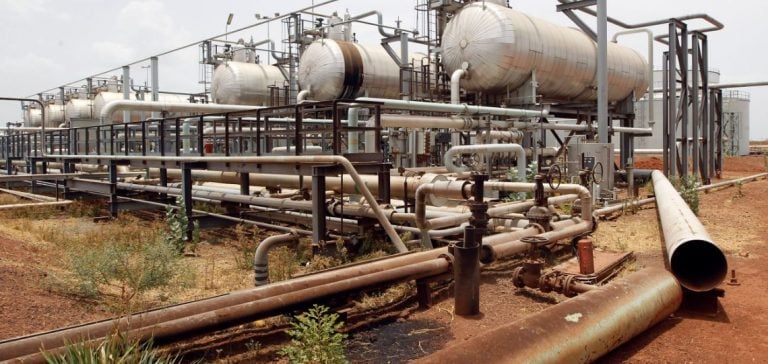After several weeks of negotiations and technical repairs, South Sudan has officially resumed its crude oil exports through its northern neighbor, Sudan. The announcement was made on Sunday, October 20, following a meeting between Sudanese President Abdel Fattah al-Burhan and Tut Galuak, Special Security Advisor of South Sudan. The news has been confirmed by multiple local sources and reported in the press.
The exports had been suspended since February due to technical damages affecting a key pipeline between the two countries. South Sudan’s Ministry of Petroleum stated that repairs are now complete, enabling the full resumption of pumping and transport activities. This pipeline, crucial for South Sudan’s economy, transports crude oil to the Bashayer port in Sudan, from where it is exported.
South Sudan, whose economy heavily relies on oil revenues, had faced a major economic crisis following the halt in exports. The inability to sell its oil led to a significant budget deficit and increased inflation in the country. This resumption is seen as a lifeline for both the government and the South Sudanese population.
Towards increasing oil production
According to Tut Galuak, technical teams from both countries are ready to strengthen their cooperation to increase oil production. Currently, South Sudan produces around 170,000 barrels per day (bpd). However, the government aims to reach a production target of 230,000 bpd in the coming months, once all operations are fully optimized.
Before the export suspension, South Sudan’s oil production had already been affected by internal political crises and armed conflicts. The civil war and ongoing tensions had significantly reduced the country’s production and transportation capacity for hydrocarbons. Sudan’s own political instability worsened this dynamic, leading to an almost total interruption of oil trade between the two nations.
A strategic issue for both nations
The agreement between Sudan and South Sudan, beyond its economic impact, also has political implications. The resumption of exports symbolizes a temporary stabilization of relations between the two neighbors. The pipelines and transport infrastructure, vital to South Sudan’s economy, are located in Sudanese territory, reinforcing South Sudan’s dependency on its northern neighbor.
The prospect of increasing production to 230,000 barrels per day is an ambitious goal that, if achieved, could significantly strengthen South Sudan’s economic situation and improve its diplomatic relations with Sudan. However, this mutual dependency also presents a vulnerability, as any political instability in Sudan could disrupt exports once again.
For now, South Sudanese authorities are celebrating this development but remain cautious about the sustainability of the agreement due to the ongoing political tensions in Sudan.






















